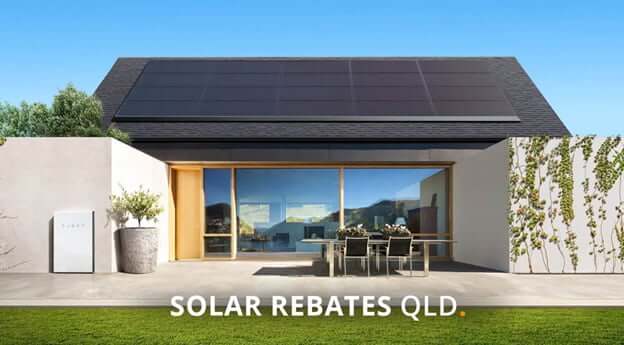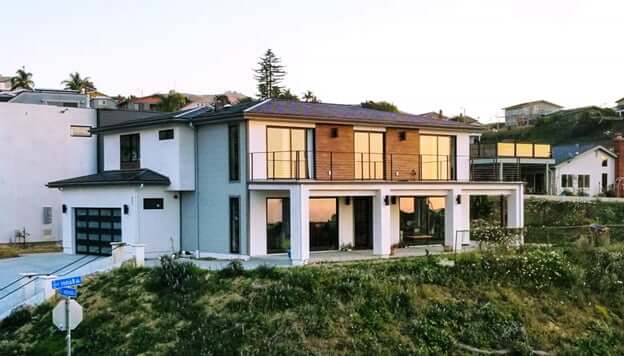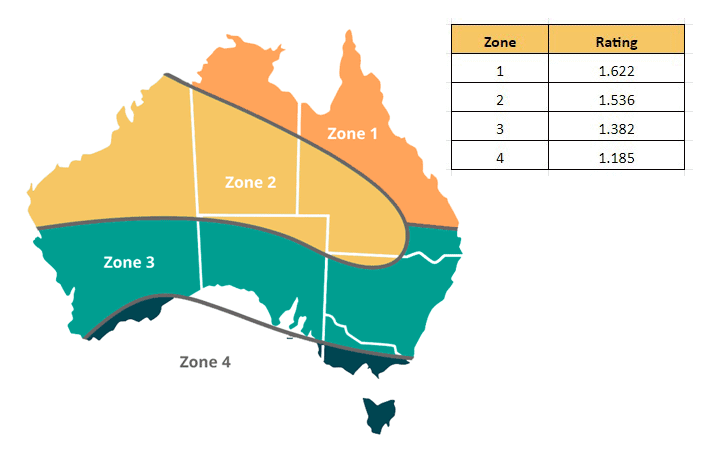Home Solar Panel Rebate Queensland Solar Rebate
Queensland Government Solar Rebate Initiative: 2025 Guide
The solar rebate scheme in Queensland, supported by the Federal Government, aims to simplify the transition to solar energy for Australians by subsidising a large part of the costs associated with setting up the system.
The solar rebate is still available in QLD, with the average STC rebate being $2,554 for a 6.6kW system.
The rebate amount will be determined by the size of the system you install, the number of STCs you get and the current trading price of the Small-scale Technology Certificates STCs.
Table of Contents
ToggleHow Much Is the Solar Rebate in QLD?
The amount of rebate you will receive will depend on the STC zone you live, the size of your system and when you intend to install it.
Check the zone s and rebate amounts for most popular sizes below.
| System size | Gross Price | Rebate | Net price after rebate |
|---|---|---|---|
| 1.5kW | $3,836 | $559 | $3,277 |
| 3kW | $5,411 | $1,157 | $4,254 |
| 5kW | $7,920 | $1,915 | $6,005 |
| 6.6kW | $9,886 | $2,554 | $7,332 |
| 7kW | $10,540 | $2,713 | $7,827 |
| 8kW | $11,740 | $3,072 | $8,668 |
| 9.9kW | $13,850 | $3,830 | $10,020 |
| 10kW | $14,012 | $3,870 | $10,142 |
| 15kW | $20,500 | $5,786 | $14,715 |
| 20kW | $28,354 | $7,741 | $20,613 |
Cities include: Cairns, Townsville, Mackey, Bundaberg, Hervey bay
| System size | Gross Price | Rebate | Net price after rebate |
|---|---|---|---|
| 1.5kW | $3,836 | $519 | $3,317 |
| 3kW | $5,411 | $1,077 | $4,334 |
| 5kW | $7,920 | $1,835 | $6,085 |
| 6kW | $9,342 | $2,195 | $7,148 |
| 7kW | $10,540 | $2,554 | $7,986 |
| 8kW | $11,740 | $2,913 | $8,827 |
| 9kW | $12,895 | $3,272 | $9,623 |
| 10kW | $14,012 | $3,671 | $10,341 |
| 15kW | $20,500 | $5,506 | $14,994 |
| 20kW | $28,354 | $7,342 | $21,012 |
Cities in zone 2: Mt Isa, Longreach
| System size | Gross Price | Rebate | Net price after rebate |
|---|---|---|---|
| 1.5kW | $3,836 | $479 | $3,357 |
| 3kW | $5,411 | $958 | $4,453 |
| 5kW | $7,920 | $1,636 | $6,284 |
| 6kW | $9,342 | $1,955 | $7,387 |
| 7kW | $10,540 | $2,314 | $8,226 |
| 8kW | $11,740 | $2,633 | $9,107 |
| 9kW | $12,895 | $2,953 | $9,942 |
| 10kW | $14,012 | $3,272 | $10,740 |
| 15kW | $21,500 | $4,948 | $16,552 |
| 20kW | $26,354 | $6,584 | $19,771 |
Cities in zone 3: Brisbane, Gold Coast, Sunshine Coast
Who is eligible for the solar rebate in QLD?
Most residential homeowners and small businesses are eligible for the federal Australian Government solar rebate, but there are a few boxes you need to tick. The Queensland government does not mandate eligibility, as this is outlined by the federal government.
- The solar system must be smaller than 100kWh.
- Must install a completely functioning solar unit. Nvo upgrades or reinstallations.
- The solar power system must be installed by accredited solar installers as recommended by the clean energy council.
- New solar customers can apply for a rebate, but only once.
How to calculate your solar rebate QLD
To calculate your rebate, you need to know your zone and system size. Queensland’s solar radiation zones influence the amount of energy your system can generate. These zones, part of the Renewable Energy Target (RET), determine the STCs you receive, impacting your overall savings.
1. Your Postcode – The state of Queensland is broken up into solar radiation zones 1, 2 and 3. The higher the solar radiation rating the better the rebate. See the map below to find your zone or go here to search by postcode.
2. Determine the size system you need – Next, you will need to work out what size system you need. This can be calculated by looking at your monthly power usage in kilowatts and dividing this amount by 30 days to get your daily usage.
3. Current STC price – At the time of writing this article in 2025, the trading price of one Small scale Technology certificate is $39.90 and has helped there for the last few years, but you might have to check before calculating your price.
To put it in perspective, a person in Brisbane Queensland installing a typical 6.6kW Solar system would receive about 54 small scale technology certificates STCs. Based on the current STC market value of $39.90, you would receive $2,155 in rebates. This amount can be claimed directly at the point of the sale price as a discount from your solar installer.

The solar rebate is still available in QLD
The Queensland solar rebate is still available in 2025, so to take advantage, you must install your solar panel system by a Clean Energy Council (CEC) approved installer.
Rebates are applied at the point of sale as a discount on your system’s price, so advertised solar system prices have the rebate baked into them.
How to claim the rebate
The installer and not the customer claim the rebate. This makes things very easy. All you need to decide is the size of the solar system you need and which solar installers can help with it. Luke Burnes a local Cairns solar installer said: “The advertised price for the system is the price after the installer has applied the rebate. They claim this rebate after they install the solar system.”

Solar Rebate Calculator
When does the solar rebate end in QLD
The QLD solar rebates will end in 2030 and the rest of the country. Since the inception of Queensland solar rebates, the number of small-scale technology certificates you receive has been reduced year over year.
The idea of the STC initiative was to help reduce the cost of going solar while the solar manufacturing industry had time to increase productivity and reduce costs over time. As the STC rebate program phases out little by little each year, the relative cost will stay the same as panel will become cheaper and more efficient.
Other programs and incentives in Queensland
Interest-free solar loans
At a state level, Queenslanders are encouraged to use interest free loans for solar and solar storage made available by the Queensland government. The interest free loans provided under QLD’s energy concessions program– enable Queenslanders to purchase solar products without spending too much at the initial stage. This is a win-win arrangement.
Solar battery rebate
Currently, the solar battery rebate provides up to $3,200 for eligible households. This initiative, combined with the Battery Booster program, helps to further offset costs for homeowners installing new solar storage systems.
Battery Booster program
The Battery Booster program offers additional support for those looking to integrate battery storage with their solar systems. Queenslanders can access this rebate, which reduces the overall installation cost and encourages sustainable energy practices.
Federal solar rebate
In addition to state programs, the Federal solar rebate plays a vital role in making solar power more affordable. It focuses on Small-scale Technology Certificates (STCs), significantly lowering the upfront costs of solar system installations across Queensland.
Solar for renters in QLD
Queensland has a huge uptake of solar power through rooftop solar systems. Still, with over 35% of homes rented in Queensland, the government is offering rebates to landlords for installing solar for their tenants.
The trial program is targeted at 1000 landlords who have properties with rent no higher than $350 per week.
Landlords can charge their tenants for solar power for a fair charge; the landlord can install a meter to measure how much power their tenants use. Tenants are then charged for the solar power consumed.
Energy Concession Program
Another Queensland government solar incentive is the energy concessions program. Created to help low-income households pay their electricity bill and install a rooftop solar system at a further reduced rate.
To be eligible for the QLD energy concession program, you must:
- Have a power bill you are unable to pay.
- Be part of your energy retailer hardship program.
- And hold a valid and current concession card.
The concession amount is $309.
Additional Energy Incentives in Queensland
Beyond solar and battery rebates, the Queensland Government also offers incentives for electric vehicle (EV) adoption. These programs work alongside solar energy incentives, enabling households to further reduce their carbon footprint and energy expenses.

How much do solar systems cost in QLD
The cost to have solar systems installed in QLD will depend on the size of the system, which Queensland solar incentives you take advantage of and the solar installer used.
Most solar customers in QLD paid an average of $6,284 for their solar PV systems. This does not include a battery system, as solar batteries normally add $12,500 to the cost.
When installing solar power systems in Australia, you must go with a clean energy council-approved installer. The clean energy regular only approves installers who know to do the job right.
Solar feed in tariffs QLD
Solar feed-in tariffs are essential for maximizing your solar system’s value. These tariffs, along with other incentives like the Federal solar rebate and the Queensland solar rebate, ensure you get the most out of your investment in solar energy.
How do feed in tariffs work?
Because most homes consume 70% of their energy at night and solar panel system produce all their energy through the day, there needs to be a way of either storing unused energy for use later at night, like with a battery, or through with a feed in tariff.
Basically you send excess solar power to the grid through the day and earn credits, you can then draw on that energy when the sun goes down cahsing in your credits and using the energy later on.
Clean Energy Council Approved Installers
To qualify for most rebates, including the Battery Booster program, you must use Clean Energy Council (CEC) accredited installers. This guarantees that the installation meets the necessary standards for safety and efficiency, crucial for accessing all available incentives.
Who has the best QLD solar feed in tariffs?
Most energy providers in QLD do offer solar feed in tariffs. They are generally less than what you are paying, but they are a business so of course, they are going to make a few cents per kilowatt.
The electricity retailers that stand out to us are:
| Min. FiT | Max FiT | |
|---|---|---|
| National average | 8.7c | |
| Best FiT in QLD | 15c | |
| Best FiT Runner up | 10.2c |  |
| Best FiT for large systems | 13.5c |
It’s also good to note here that Queensland solar feed-in tariffs largely depend on where you live and you will generally get better rates in South East Queensland than in regional Queensland.
What are STC’s?
STC stands for Small scale Technology Certificate. The price of these certificates is traded on the open market and is closely linked to the price of carbon. The current price as of writing this article is $39.90, but generally, it will vary between $35 to $40 per certificate.
The amount of STCs you get per 1kW of solar installed will depend on:
- The price of STCs
- The number of STCs per KW
- The size of your system
Solar rebates given in QLD for solar pv systems are all based on the number of STCs you receive and the price of those STCs. This is decided on the open market and monitored by the clean energy regulator.
Check our homepage for more on solar rebates for different states.
Queensland’s focus on renewable energy systems extends beyond just solar panels. Various programs support the adoption of solar, wind, and battery storage systems, all aimed at reducing greenhouse gas emissions and promoting energy independence.
STC zoning in Australia

As you can see from the above map, there are four main zones in Australia, and Queensland seems to fall into three of them depending on exactly where you live.
North East Queensland
Zone 1 has a sun radiation rating of 1.622, giving you the most bang for your buck with rebates. If you wanted to install a 6.6kW, you would receive 64 STCs currently trading at $39.90. Your total rebate would be $2,554.
Regional Queensland
Zone 2 covers regional Queensland. You can search your postcode in the below link to see which zone you are in. Just hit control + F and begin typing your postcode. View your rebate for a 6.6kW system below for zone 2.
South East Queensland
As the solar radiation reduces, so does the rebate you are entitled to. That being said, the rebate for this region in Queensland is still quite generous.
Reference: Clean energy regulator rating list
Compare Solar Panel Quotes
Table of Contents
Toggle









